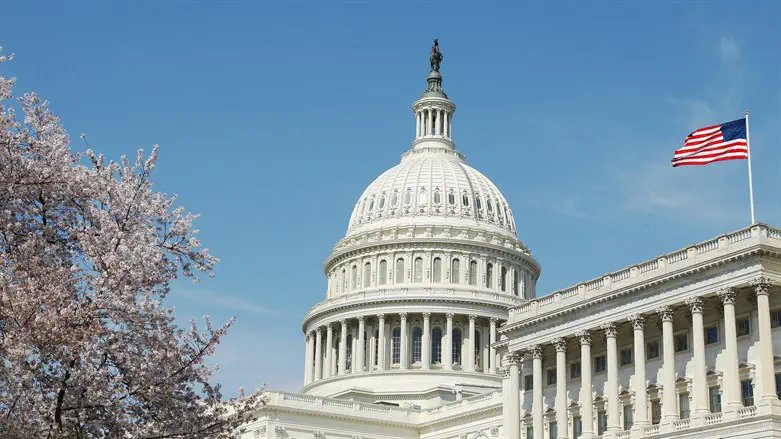
The American Jewish Committee (AJC) and the House Bipartisan Task Force for Combating Antisemitism are hosting a virtual briefing for members of Congress and congressional staff on Thursday, to coincide with Holocaust Remembrance Day.
The 1 p.m. briefing comes during a significant increase in antisemitism across the United States, and 12 days after a terrorist held hostage the rabbi and several congregants at Beth Israel Synagogue in Colleyville, Texas, AJC noted.
The AJC’s 2021 State of Antisemitism in America Report will be presented by Holly Huffnagle, AJC’s director for combating antisemitism, to the taks force. “Concrete recommendations” to address antisemitism will also be presented.
The annual report, in its third year, is a survey and overview of antisemitism in America, making use of parallel national surveys of the the Jewish and general adult populations. The survey was released on the third anniversary of the Tree of Life Synagogue shooting in Pittsburgh.
The report’s main findings were that nearly a quarter of American Jews had been targeted by antisemitism in the last year; 39 percent of American Jews had altered their behavior out of worry over antisemitism; 41 percent of Americans had witnessed an antisemitic incidents in the last year, with 31 percent having seen more than one; and while 90 percent of Jews see antisemitism as a problem in the US, only 60 percent of the general population feels the same way.
“Majorities of both American Jews and the U.S. general public agree that antisemitism is a problem in America, though to differing extents,” the report said.
It noted that “there is a far greater contrast between American Jews and the US general public when it comes to the question of whether antisemitism is getting worse in America.”
“A year ago, nearly half of Americans surveyed did not know what antisemitism was — or had never even heard the term. This year, two-thirds (65%) of respondents said they know what antisemitism is, and the findings of this report suggest that they are seeing it.”
Yet, the report said that findings pointed to a “discrepancy between Jewish and non-Jewish Americans on whether antisemitism is getting worse, the public’s general unawareness of antisemitic incidents that have heightened many American Jews’ sense of insecurity, and—of course—the number of Jews who have reported being the victims of antisemitism indicate that there is work to be done.”
